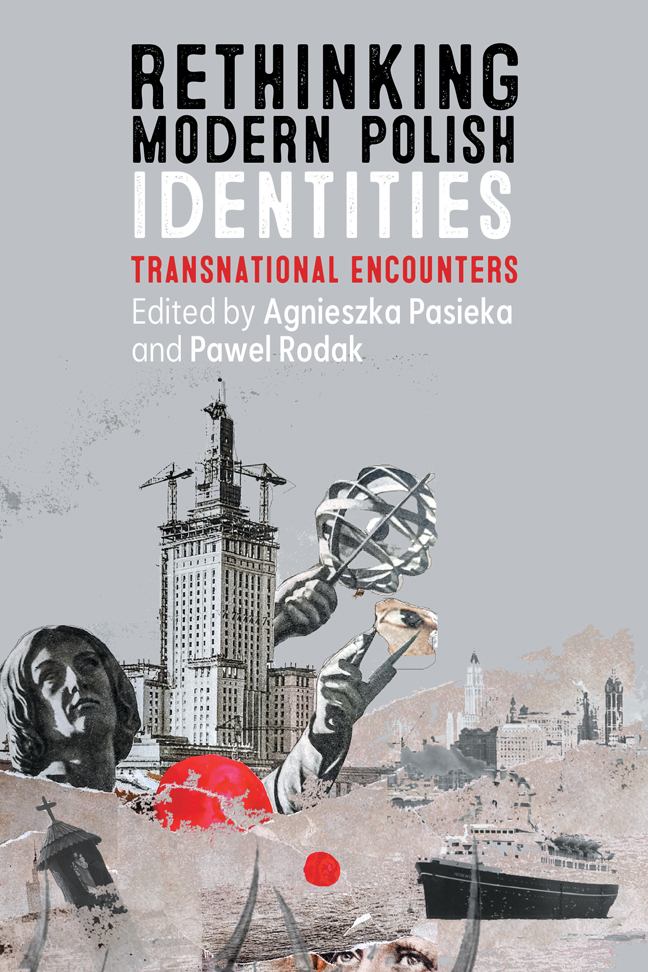Book contents
- Frontmatter
- Contents
- Acknowledgments
- Introduction: Polishness: A Story of Sameness and Difference
- Part One Redefining Polishness
- Part Two Identity in the Making
- Part Three Portraits and Performances
- Afterword: Polishness: A Time of Deconstruction, a Time of Reconstruction
- Notes on the Contributors
- Index of Names
- Index of Subjects
Thirteen - The Polish Connection: Lithuanian Music and the Warsaw Autumn Festival
Published online by Cambridge University Press: 10 January 2024
- Frontmatter
- Contents
- Acknowledgments
- Introduction: Polishness: A Story of Sameness and Difference
- Part One Redefining Polishness
- Part Two Identity in the Making
- Part Three Portraits and Performances
- Afterword: Polishness: A Time of Deconstruction, a Time of Reconstruction
- Notes on the Contributors
- Index of Names
- Index of Subjects
Summary
A group of singers stands in a circle as the final section of Bronius Kutavičius’s Last Pagan Rites begins. One vocalist starts to repeat a short, simple phrase that glorifies a sacred oak tree. Gradually, her companions begin to sing the same melody, staggering their entrances so that the sonic texture builds in layers of repetitive material. The music is simultaneously static and mobile—constantly circling back to its beginning, while slowly increasing in density. Kutavičius’s canonic procedures are simultaneously modern and archaic—similar to the gradual processes devised by American minimalist composers Philip Glass and Steve Reich, while also reminiscent of polyphonic practices in Lithuanian folk singing that had nearly disappeared from oral tradition before their revival in the 1960s. The work's Lithuanian texts, by contrast, point in only one direction: they identify a circumscribed community through the distinctive sounds of its language.
Kutavičius allows the adoration of the oak to unfold over several minutes. Then another process begins; like the music that precedes it, this passage also uses aural signifiers to reinforce links between sound, religious confession, and national identity. Quietly, an organ plays a phrase that has been likened to the Bogurodzica (“Mother of God”), a monophonic thirteenth-century chant that is considered Poland's oldest hymn. As if the melody and the instrument itself were not enough to evoke the world of Christianity, Kutavičius recalls the texture of chorales by harmonizing the organ's melodic line with vertical block chords. The organ plays its phrase once more, this time slightly louder; although the singers have now exited the performance space, the sound of their voices persists in a recording. Each time the organ repeats the phrase it increases in volume, and, by its seventh entrance, the recording of the singers has become barely audible. Thus, the organ's Christian rites ultimately engulf the singers’ pagan ritual. This prolonged crossfade is the sole instance of stark contrast in a work that otherwise avoids sharp juxtapositions.
Last Pagan Rites is part of a set of four oratorios in which Kutavičius explores facets of Lithuanian history and identity. Kutavičius, adhering to the career trajectory of many (formerly Soviet) composers of his generation, gradually developed the compositional approach these works exemplify.
- Type
- Chapter
- Information
- Rethinking Modern Polish IdentitiesTransnational Encounters, pp. 277 - 303Publisher: Boydell & BrewerPrint publication year: 2023



